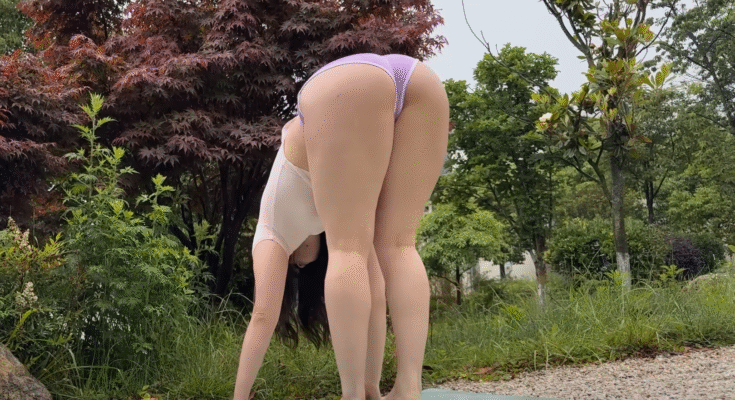
Father’s Day is a time of gratitude, celebration, and reflection. It’s a moment to honor the men who nurture, guide, and protect with love and quiet strength. While gifts and family gatherings often mark the occasion, there is also something profoundly meaningful about beginning the day with peace and mindfulness. A morning yoga routine, accompanied by the soothing sounds of rainy ASMR music, offers not just a practice of movement, but a ritual of harmony between mind, body, and nature.
Filmed in vivid 4K resolution, this practice immerses you in the serene beauty of a rainy morning. The droplets tapping softly against leaves, the rhythm of water pooling on the earth, and the calm flow of yoga postures all merge to create a celebration of life—one that fathers, families, and anyone seeking balance can embrace.
The Symbolism of Father’s Day in Yoga
Fatherhood often embodies qualities of grounding, stability, and resilience. In yoga, these qualities are mirrored in postures that root the body to the earth, strengthen the core, and cultivate calm through breath. Just as a father provides steady guidance, yoga offers stability for the mind and strength for the body.
Practicing yoga on Father’s Day is more than exercise—it becomes a way of honoring those values, and of reconnecting with the natural world that fathers often teach us to respect. With the sound of rain as the soundtrack, this practice reminds us that just like nature, fatherhood is about patience, presence, and quiet devotion.
Beginning the Practice: Breath and Gratitude
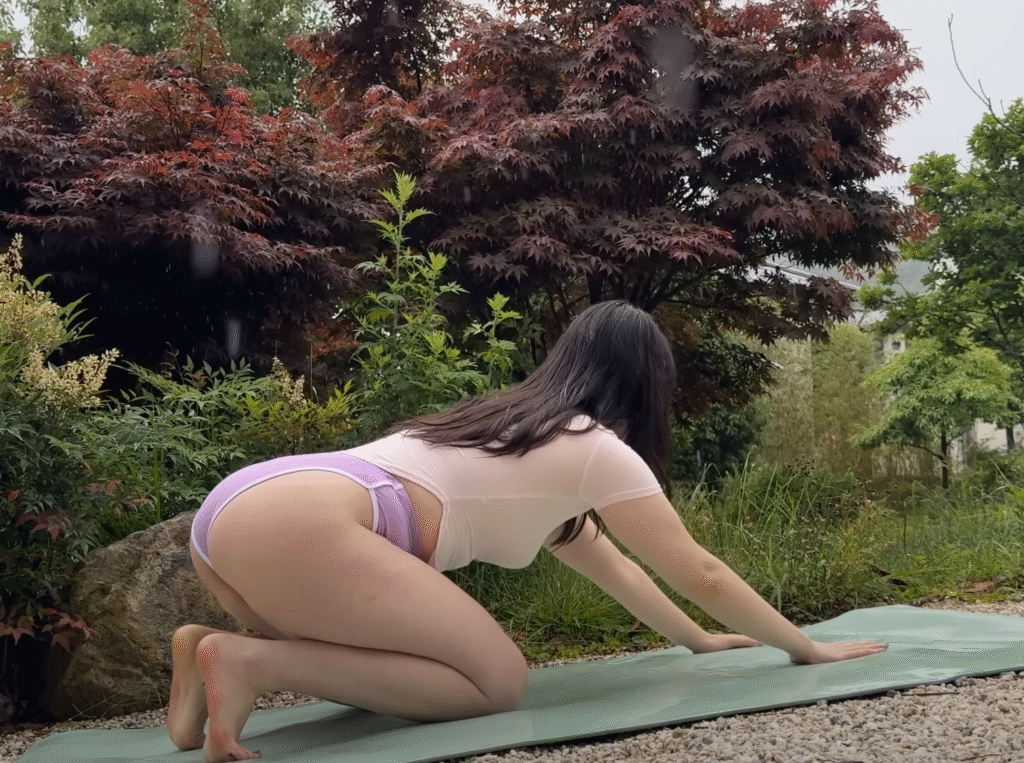
The practice begins seated comfortably on the mat. The air feels cool, the rain outside creating a cocoon of sound. Eyes close, and attention shifts inward.
One hand rests on the heart, the other on the belly. Breath is drawn in slowly through the nose, filling the lungs with freshness and peace. Exhalation is long and steady, as though releasing the weight of yesterday.
At this moment, gratitude becomes the focus. Whether you are a father, celebrating your father, or simply reflecting on fatherhood as a concept of nurturing, the breath becomes a way to acknowledge love and respect. Each inhale invites gratitude, each exhale sends it outward to those who have guided us.
Gentle Warm-Up Stretches
The body is eased into motion with gentle stretches to awaken energy without strain:
- Neck rolls, soft and slow, easing away tension.
- Seated side stretches, one arm overhead, elongating the ribs and lungs.
- Seated spinal twists, wringing out stiffness and creating space in the torso.
The rain’s rhythm serves as background music, creating a meditative state where even simple stretches feel meaningful. Every droplet outside feels like nature participating in the practice.
Sun Salutations for Energy
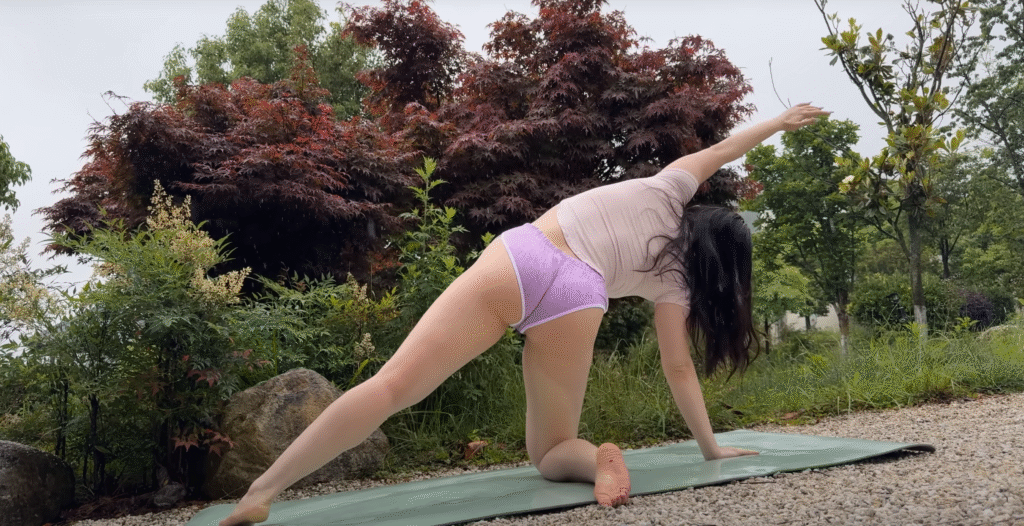
Father’s Day morning deserves vitality, and nothing awakens the body more gracefully than Sun Salutations (Surya Namaskar).
Standing tall in Mountain Pose, palms pressed together at the heart, the body feels grounded. Inhale, arms sweep overhead. Exhale, fold forward, hands reaching toward the mat. Inhale, lift halfway, spine long. Exhale, step back into plank, lowering gently. Inhale, the chest opens in Cobra or Upward Dog. Exhale, hips rise into Downward Dog, heels pressing gently toward the earth.
This sequence flows with the rain’s tempo, each movement steady and grounded. The repetition builds heat in the body, yet the presence of ASMR rain keeps the mind calm.
On Father’s Day, the Sun Salutation feels symbolic—honoring the rising sun, a new day, and the life-giving energy fathers provide, much like the sun itself.
Balancing Postures for Focus
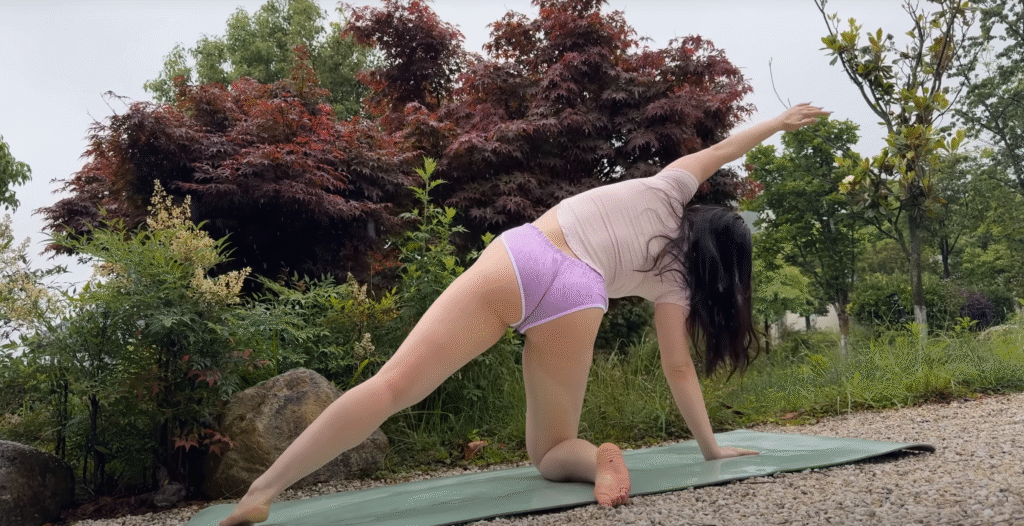
Balance in yoga teaches patience and calm under challenge, qualities mirrored in fatherhood.
- Tree Pose (Vrksasana): Standing tall, one foot presses into the opposite thigh or calf, hands at the heart or extended upward like branches. The posture symbolizes stability and growth, rooted yet reaching toward the sky.
- Warrior II (Virabhadrasana II): Feet wide, arms extended, gaze forward with steady focus. This pose embodies strength, presence, and determination—attributes often admired in fathers.
With the rain falling softly in the background, balance postures feel grounded and deeply connected to nature. Even slight wobbles become part of the practice, reminding us of resilience.
Heart-Opening Stretches
Fatherhood often calls for strength, but also tenderness. Heart-opening poses reflect the balance of these qualities:
- Cobra Pose (Bhujangasana): Lying on the belly, hands pressing gently into the mat, chest lifts and heart expands.
- Bridge Pose (Setu Bandhasana): Lying on the back, hips lift toward the sky, chest broadens, shoulders firm against the mat.
These poses invite vulnerability and openness, releasing any heaviness in the chest. Combined with the calming rain, they foster compassion and warmth—reminders of the love that flows in family bonds.
Seated and Supine Stretches
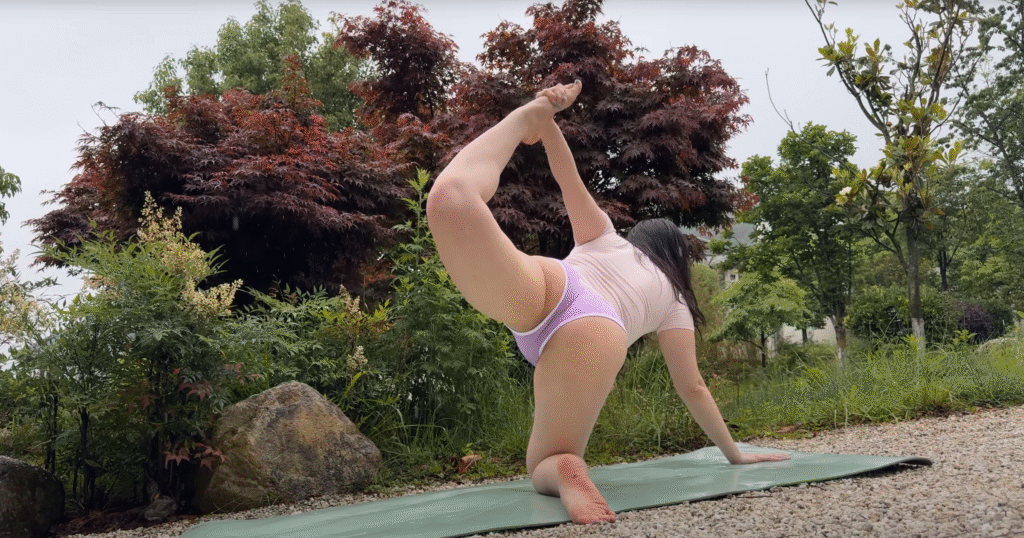
To prepare for relaxation, the flow slows with seated stretches:
- Seated Forward Fold: Legs extended, torso folds gently over them, calming the nervous system and grounding the mind.
- Supine Twist: Lying on the back, knees fall to one side, arms extend wide, releasing tension from the spine.
- Happy Baby Pose: Hugging the feet, rocking gently, creating lightness and playfulness, much like the joy of children celebrated on Father’s Day.
Each stretch is guided by long breaths, the sound of rain amplifying the stillness. The practice now feels less like movement and more like meditation in motion.
Closing Meditation with Rain ASMR

The practice ends in Savasana, lying flat on the mat, arms relaxed, palms open. The body is heavy, the mind light.
The rain sound now takes center stage—steady, soothing, like nature’s lullaby. The ASMR qualities of rain (soft patters, rolling thunder far away, rhythmic drips) calm the nervous system and lull the mind into peace.
A short guided meditation may be introduced here:
“As the rain falls, imagine it washing away the weight of yesterday. Each droplet is renewal, each sound a reminder of harmony. You are connected—mind, body, and nature—just as you are connected to family, love, and life itself.”
The meditation ends with hands coming together at the heart. A bow seals the practice, offering gratitude for the body, the breath, the rain, and the gift of Father’s Day.
The Power of 4K Immersion
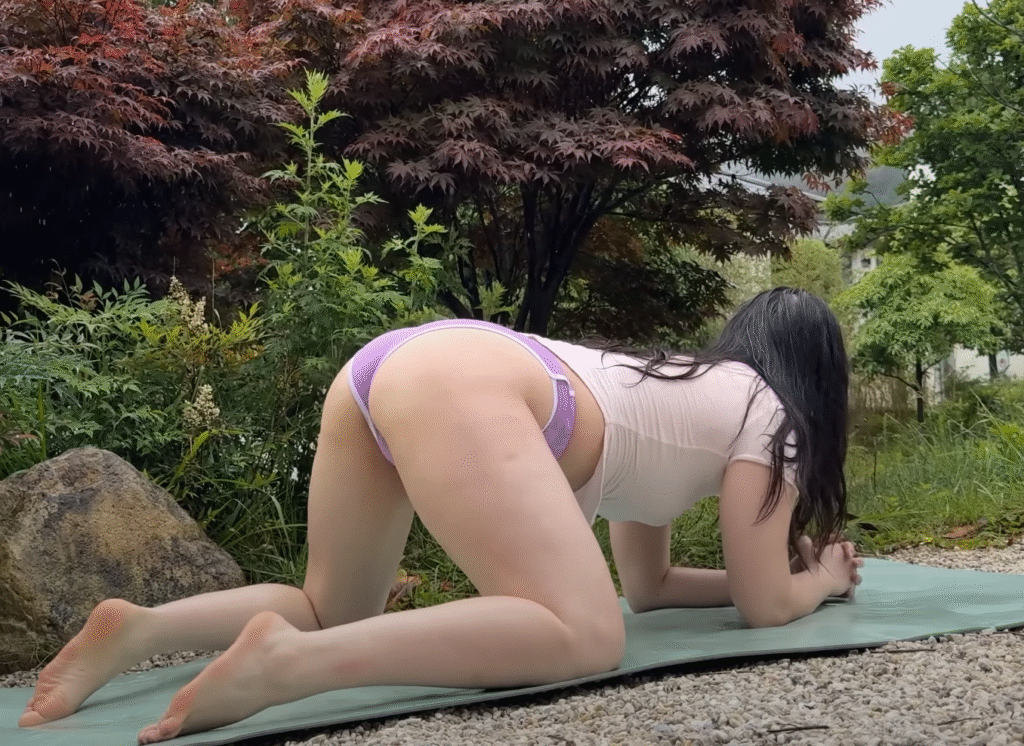
The 4K visuals elevate the experience. Every raindrop glistening on leaves, every subtle shift in posture, every flicker of candlelight is captured with stunning clarity. This high-definition detail deepens the sense of immersion, making the viewer feel not like a spectator but a participant.
When combined with rain ASMR, the practice becomes a multi-sensory journey—sight, sound, breath, and movement uniting seamlessly.
Carrying the Practice Beyond the Mat
The greatest benefit of this Father’s Day morning yoga practice is not only the calm it brings in the moment but also the harmony it creates for the day ahead. Fathers, families, and anyone who practices carry this balance into their interactions—more patience, more compassion, more presence.
Yoga teaches that strength is not just physical, but also emotional and spiritual. Rain teaches that calm comes through rhythm, not force. Together, they harmonize mind, body, and nature.
✨ Happy Father’s Day! 4K • Morning Yoga Routine | Rainy ASMR Music to Harmonize Mind, Body & Nature is more than a yoga flow. It is a celebration of presence, of gratitude, and of connection. It reminds us that the greatest gift we can give—to fathers, to families, and to ourselves—is the gift of mindful presence.
By starting Father’s Day with breath, movement, and rain-soaked stillness, we honor not only the fathers in our lives but also the harmony of life itself.
